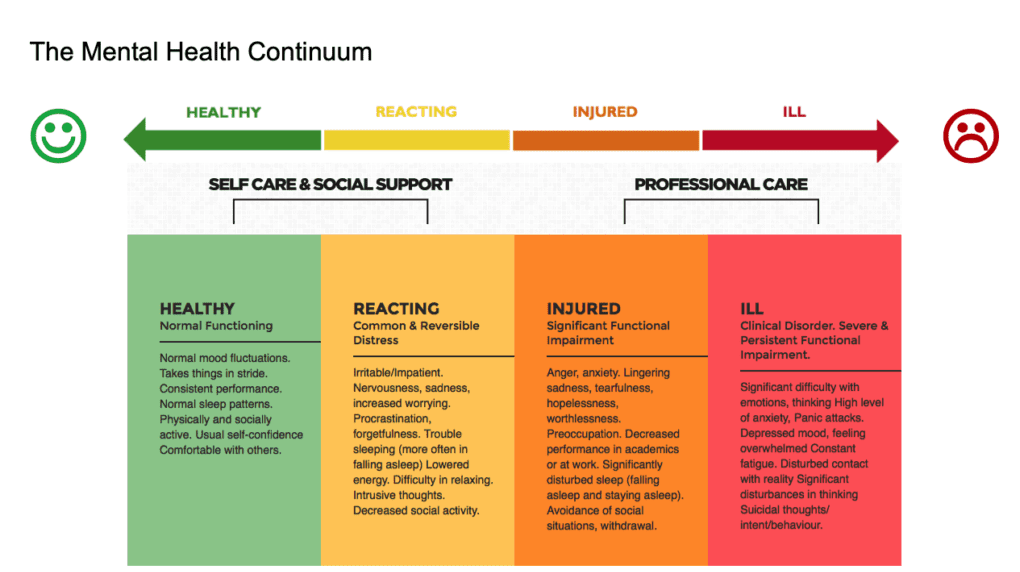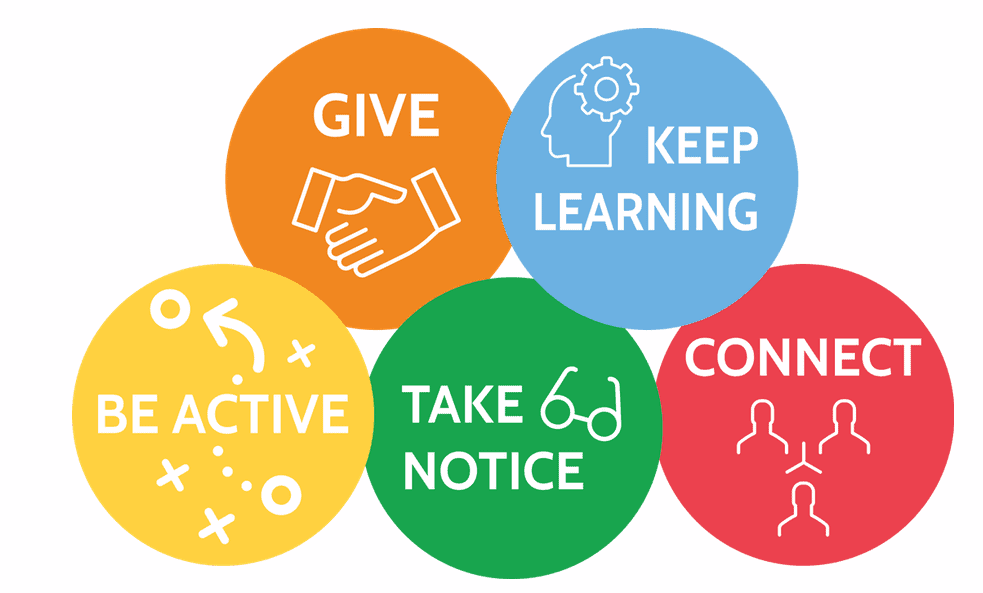
Helen Duyvestyn
(Registered Nurse, Adv. Dip Nursing, Cert. Adv. Nursing, MHSc [Mental Health])
Note — The article was checked and updated December 2022.
What does it mean to be Mentally Healthy?
“Mental health” is a term that is bantered around a lot. But do we understand exactly what it means? Also, how do you know if you are mentally well or unwell?
The WHO (World Health Organisation) states that mental health is “A state of well-being in which every individual realizes his or her own potential, can cope with the normal stresses of life, can work productively and fruitfully, and is able to make a contribution to her or his community”.[1]
This definition focuses on “realising our own potential”. It says nothing of who you are, your job, your income, your circumstances nor does it say anything about the total absence of mental or any other illness, which for many people may not be attainable, for whatever reason.
RELATED — What is my Purpose in Life: How to find your direction
Many people live with ongoing “issues”, but strive forward, continue to grow, contribute, nurture themselves and others around them and have a balanced sense of mental health.
It never stops
Mental Health is on a continuum. It ebbs and flows throughout our lifetime. Any one of us can dip into episodes of mental illness in varying degrees – whether it is mild depression, anxiety or something a little more serious. Staying in good mental health can require a bit of effort and sometimes some external wisdom.

Medication and talk therapy are two of the main ways that mental illness is treated, however, there are many things we can do ourselves to support our mental well-being. This can include eating well, movement, rest and relaxation, social relationships and nurturing our bodies and minds in ways that are individual to our needs.
Ways to Wellbeing
The Mental Health Foundation of New Zealand suggests ‘Five Ways to Well-being’ to support mental health.[2] These include:
Connect (talk, listen and interact with others),
Keep Learning (try new experiences),
Give (which involves doing something for others – even if it’s a smile),
Be Active (movement, exercise and physical activity) and
Take Notice (which involves paying attention – especially to things which give you joy).

I especially love the definition of ‘Take Notice’, which suggests:
“Be curious and catch sight of the beautiful, remark on the unusual. Notice the changing seasons. Try savouring the moment, whether you are walking to work, eating lunch or talking to friends. Be aware of the world around you and what you are feeling. Reflecting on your experiences will help you appreciate what matters to you.”
Helen is a registered nurse who holds a Masters in Health Science (Mental Health) and is a trained Life Coach. She has worked for fifteen years in acute psychiatry as a psychiatric nurse and for over two years in a holistic health clinic in Central Auckland, specialising in physical health and well-being. She has trained with ACNEM (Australasian College of Nutritional and Environmental Medicine) and is a member of AIMA (Australasian Integrative Medicine Association).
Helen is passionate about empowering others through education to reach their mental health and well-being potential. Read more about Helen and her work at www.onelifenz.com
Reference
(1) World Health Organization. (n.d.). WHO urges more investments, services for mental health. World Health Organization.
(2) Mental Health Foundation. (2021). Five Ways to Wellbeing. Mental Health Foundation.







Taking time to disconnect from technology and social media, and instead focusing on activities that promote mindfulness and relaxation, can also help improve mental health.